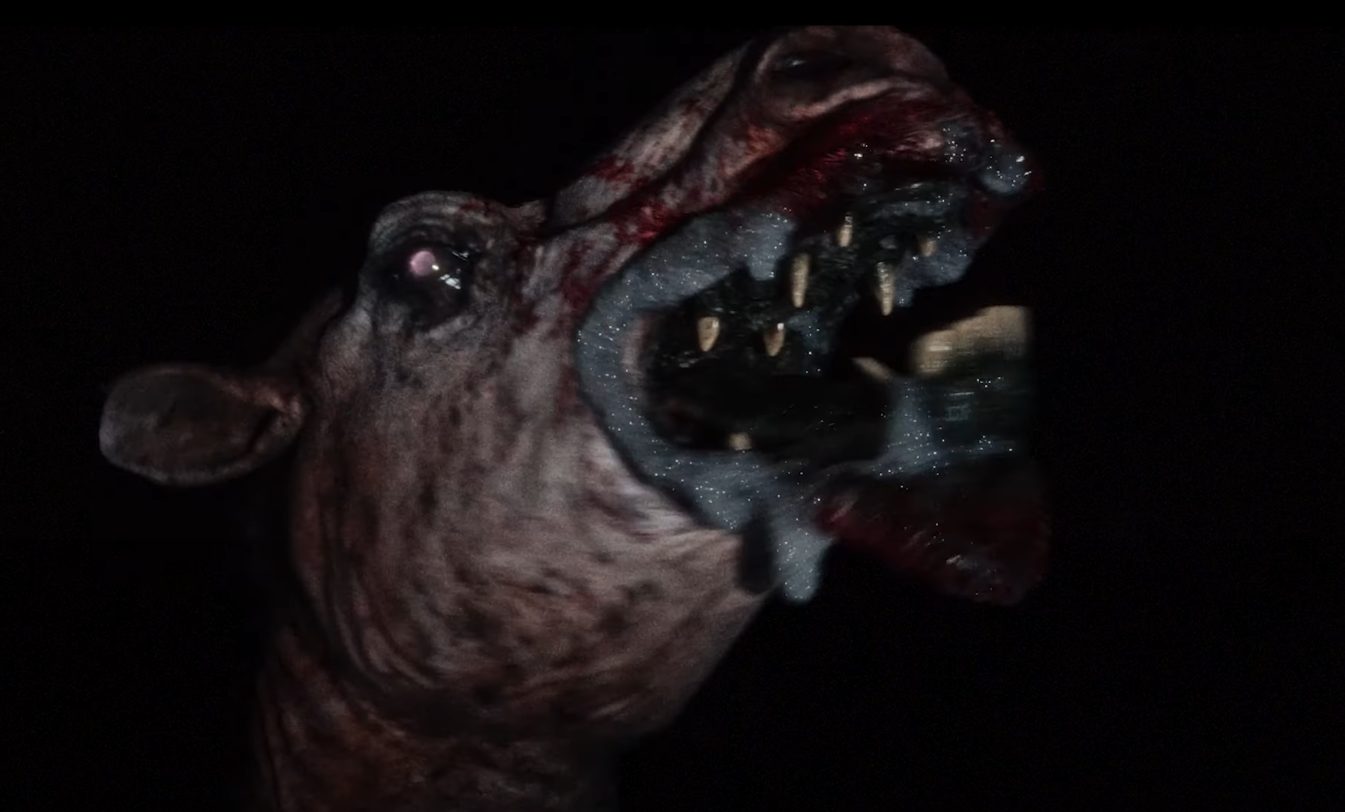Netflix has long had the reputation for funding or showcasing some quirky and unusual foreign films that would otherwise go under the radar in the Western world. This is largely a good thing, and in the case of Saudi Arabian cinema, a glimpse into a relatively unseen world of cinematic art. What with cinemas having been banned for over thirty years and only recently reopened there’s a freshness and energy that comes with the renewed passion for filmmaking.
Naga is a film born into this new world of expression, and can easily be seen as being heavily influenced by Western road-trip and ‘party night’ films. It leans towards classics as varied as Fear and Loathing in Las Vegas, Superbad, and Ferris Bueller’s Day Off, while still retaining a distinctly Saudi perspective in its storytelling. Writer/director Meshel Al Jaser, has thrown almost every trick in the book at it, and while some sticks, it’s also something of a frenetic mess at times.
The plot follows Sarah (Adwa Bader), a bored and somewhat bratty, self-entitled young woman, as she hoodwinks her strict father, to sneak out on a date with Saad (Yazeed Almajyul). The pair take his beat-up old car on an LSD-laced road trip through the desert, to a high-class, invite-only party where a famous poet (Jabran Al Jabran) is holding court. But on the way there and back again, the pair are beset by police, phone troubles, biker gangs, and even a vengefully sadistic camel. All of which is set against the clock, as Sarah needs to get herself home by 10pm sharp, or face her father’s wrath.
The problem is that after the opening act, there is literally so much going on that the film starts to induce tonal whiplash as the plot rockets from grim seriousness, to farcical slapstick, to horror, to social commentary, to zany offbeat comedy, sometimes within a single scene. It’s commendable that Al Jaser has chosen to try his hand at so many different styles, but the result actively works against the film and the story itself. When the movie does stop for a moment in one place, such as when Sarah hides under a car from the aforementioned camel, the film barely acknowledges it and rushes on almost immediately to the next story beat.
Another choice that falls somewhat flat, is the decision to have Sarah be, in Al Jaser’s words, an ‘antihero’. This might be the intent, but despite Bader’s occasional wry charisma, the character comes across as needlessly acerbic, violent, and thoughtless. Insulting, wronging, lying to, stealing from, or otherwise abusing almost every character she encounters throughout the story. It makes it increasingly hard to root for her, despite the clearly and deliberately shown constraints of her society and the constant societal frustrations that she faces as a young Saudi woman.
It’s truly unfortunate, as there is great scope here to delve into the constraints that burden the character, and in the hands of a more seasoned filmmaker, or perhaps with a more focused script, that might have been powerful. Instead, it’s constantly unclear what the film is trying to say. There’s certainly something approaching a feminist undercurrent to the narrative, and even the title, Naga, which is Arabic for a female or specifically a ‘cow’ camel, leans towards some sort of point. But despite the presence of the vindictive mother camel, out for vengeance against Sarah and Saad for running over its calf, that plotline takes up barely ten minutes of the two hour runtime.
There is always the possibility that there are some aspects of the film which are culturally unique, and as such impenetrable to an audience not well versed in Saudi culture. The film doesn’t handhold over aspects of day-to-day life, or interpersonal relationships. Indeed, even the fact that Saad and Sarah are courting isn’t immediately clear, or specifically delineated in dialogue. But nevertheless, the film’s failings are far larger than a lack of clarity on the minutiae of character relationships.
While there are definite things to commend the film on; the cinematography for example is frequently inventive and well composed, ultimately watching it is an exercise in frustration. It keeps almost feeling like it’s about to be a more interesting film. Instead by trying to be all things it fails to be most of them, least of all satisfying.
Screening on Netflix now


Comments